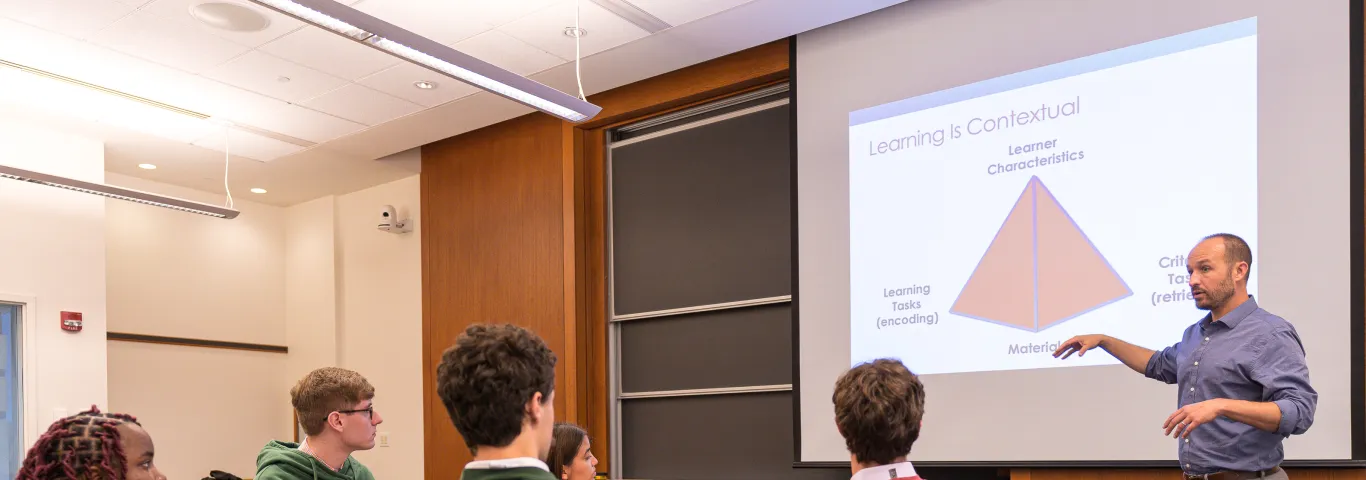Whether your goal is to teach young minds, discover how humans learn, or better understand educational institutions and policies, the Department of Education at Washington University offers a chance to explore your interests, develop your skills, and begin your journey to a rewarding career. We offer undergraduate programs in the following areas:
Teacher Education
The elementary, middle school, and secondary undergraduate teacher education programs are designed to produce teachers who take an inquiry-oriented approach to education. Based upon the belief that teaching is a complex normative and changing activity, teacher education is viewed as an on-going, problem-solving process as opposed to a search for the "one right" answer or "one best" way.
Teacher Certification is available to rising sophomores and upperclassmen who will complete their degree by Spring 2028.
Planning for Certification (Licensure)
in Missouri in States Other than Missouri
Educational Studies
The undergraduate major or minor in Educational Studies is for persons interested in the study of educational processes and institutions. Students in the Educational Studies program apply the perspectives and methods of a number of disciplines to questions about educational institutions, educational processes, and the social and cultural factors that affect them. The program provides an entry point into the study of the multidimensional field of education, analysis, the individual and the collective.


